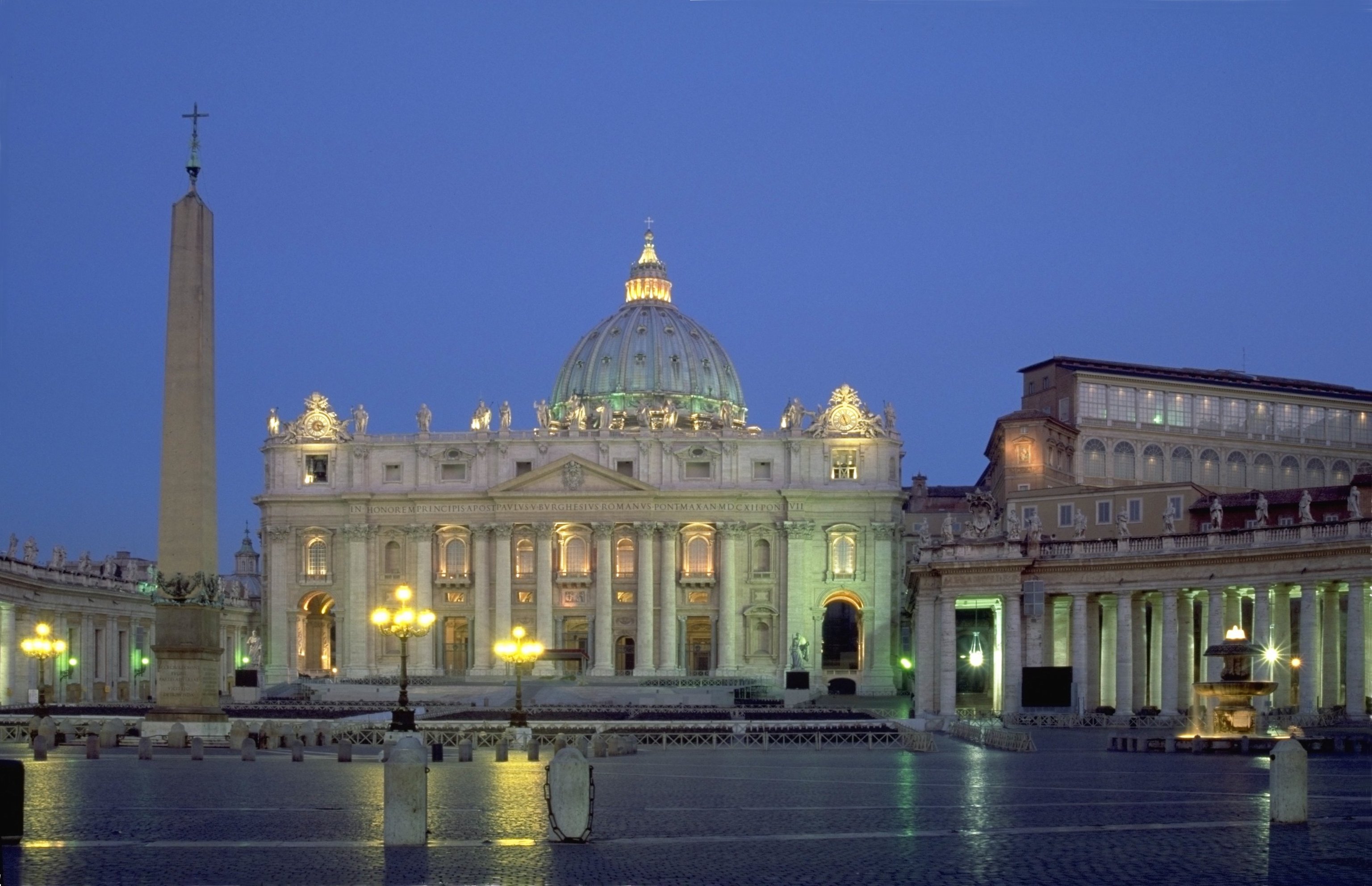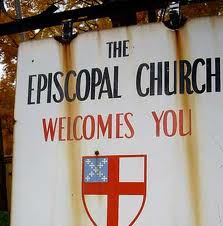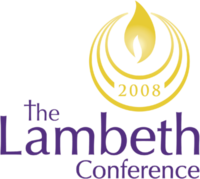Same-Sex Relations in the Roman Catholic and Episcopal Churches
Has ARCIC and ARC-USA run its course?
COMMENTARY
By David W. Virtue
www.virtueonline.org
April 23, 2014
The Anglican-Roman Catholic Theological Consultation in the U.S.A. (ARC-USA) has released a keynote document, Ecclesiology and Moral Discernment: Seeking a Unified Moral Witness, with a clear statement that the Roman Catholic and Episcopal Church are further apart than ever on sexuality issues. This begs the deeper question: Why does the Roman Catholic Church waste its time talking to the Episcopal Church as it moves increasingly away from the biblical witness on human sexual behavior with every passing general convention.
“It is hard to see how our differences in moral theology and ecclesiology will be resolved, and it is not clear to many whether they should be,” said the document.
For almost fifty years, since 1965, the Episcopal Church and the Roman Catholic Church have been engaged in an official bilateral dialogue sponsored by the two churches. As a part of this dialogue, ARC-USA has produced a number of statements and reports building on and responding to the work of the Anglican-Roman Catholic International Commission (ARCIC) established in 1967.
 In this latest consultation, The Episcopal Church was represented by the Rt. Rev. John C. Bauerschmidt, Bishop of the Episcopal Diocese of Tennessee. The RCC was represented by the Most Rev. Denis Madden, Auxiliary Bishop of Baltimore and Chairman of the Bishops’ Committee for Ecumenical and Interreligious Affairs of the United States Conference of Catholic Bishops.
In this latest consultation, The Episcopal Church was represented by the Rt. Rev. John C. Bauerschmidt, Bishop of the Episcopal Diocese of Tennessee. The RCC was represented by the Most Rev. Denis Madden, Auxiliary Bishop of Baltimore and Chairman of the Bishops’ Committee for Ecumenical and Interreligious Affairs of the United States Conference of Catholic Bishops.
Bauerschmidt, a moderate, not as orthodox as his predecessor Bishop Bertram Herlong, who saw his diocese decimated following the polarizing ordination of Gene Robinson as Bishop of New Hampshire with a number of parishes leaving and joining the ACNA. While some conservatives have remained loyal to the Diocese, the balance of power now rests with a coalition of liberals and moderates. Bauerschmidt, following GC2012 which authorized liturgies for same-sex blessings, signed a statement of dissent and said he had no plans to authorize use of these liturgical rites in the diocese.
 Ironically in 2003, then Presiding Bishop Frank T. Griswold resigned as co-chair of a key Anglican-Roman Catholic dialogue at his own initiative saying he did not want the Roman Catholic response to the ordination in New Hampshire to jeopardize talks. Griswold had been one of ARCIC¹s Anglican co-chairs since 1999. Griswold denied that he was pushed out or pressured by either the Vatican or Lambeth Palace.
Ironically in 2003, then Presiding Bishop Frank T. Griswold resigned as co-chair of a key Anglican-Roman Catholic dialogue at his own initiative saying he did not want the Roman Catholic response to the ordination in New Hampshire to jeopardize talks. Griswold had been one of ARCIC¹s Anglican co-chairs since 1999. Griswold denied that he was pushed out or pressured by either the Vatican or Lambeth Palace.
In 2009, ARCIC talks took a major hit when Pope Benedict XVI decreed the setting up of an Ordinariate for disaffected Anglo-Catholics. Dr. Rowan Williams went to Rome to salvage Anglo-Catholic dialogue after he expressed "disappointment" that the Vatican had given him just two weeks' notice of its intention to set up personal ordinariates to accommodate Anglicans who become Catholics.
Despite a communique that said talks between the Pontiff and the ABC were “cordial” with the standard reiteration that they would continue to consolidate the ecumenical relationship between Catholics and Anglicans, the die had been cast. Dr. William’s private and public statements on homosexuality did not sit well with Rome, nor for the vast majority of Global South Anglicans.
 Benedict XVI tried to reverse the disaster of indifferentism, but they never disbanded ARCIC, though John Paul II did suspend it after the ordination of Gene Robinson. It was, as one observer noted, “A moment in which reality asserted itself. What is unclear is WHY that assertion of reality was itself suspended. Why did ARCIC then recommence operations as though nothing had happened, despite the fact that throughout the Anglican communion, openly gay bishops are now seen as quite normal and there are thousands of women priests, several of whom are even commissioners in the new ARCIC?”
Benedict XVI tried to reverse the disaster of indifferentism, but they never disbanded ARCIC, though John Paul II did suspend it after the ordination of Gene Robinson. It was, as one observer noted, “A moment in which reality asserted itself. What is unclear is WHY that assertion of reality was itself suspended. Why did ARCIC then recommence operations as though nothing had happened, despite the fact that throughout the Anglican communion, openly gay bishops are now seen as quite normal and there are thousands of women priests, several of whom are even commissioners in the new ARCIC?”
Recently, former Archbishop of Canterbury, Lord Carey said Catholics and Anglicans involved in formal ecumenical dialogue might as well be “talking on the moon” because no one is listening to them.
 Lord Carey of Clifton believes the work of the Anglican-Roman Catholic International Commission (ARCIC) is “irrelevant” to most Christians, who are motivated by relations at the grassroots level. He suggested that financial grounds alone might justify the abandoning of the ecumenical project in favor of local projects underpinned by good will and a shared commitment to charity.
Lord Carey of Clifton believes the work of the Anglican-Roman Catholic International Commission (ARCIC) is “irrelevant” to most Christians, who are motivated by relations at the grassroots level. He suggested that financial grounds alone might justify the abandoning of the ecumenical project in favor of local projects underpinned by good will and a shared commitment to charity.
The former Archbishop of Canterbury noted that 45 years of attempts to bring about visible unity by bridging theological differences had “run into the sand. I don’t know what is going on,” he said. “If you take the latest ARCIC document, I think it is so irrelevant to the ordinary Christian – Catholic, Anglican or Methodist – that it might as well be talking on the moon.”
In this most recent communique on same-sex relations, both churches acknowledged the challenge by the rise of a culturally new understanding.
 The Roman Catholic Church’s teaching on human sexuality recognizes that sexual identity as male and female persons is part of the original and divine plan of creation; God is the author of matrimony (Gen. 2). Grounded in its understanding of natural law, the Catholic Church, in teaching that marriage is a sacred union, seeks to cooperate with God’s design for creation. The Second Vatican Council noted that the benefits and purposes of marriage have “very decisive bearing on the continuation of the human race, on the personal development and eternal destiny of the individual members of a family, and on the dignity, stability, peace and prosperity of the family itself and of human society as a whole.”
The Roman Catholic Church’s teaching on human sexuality recognizes that sexual identity as male and female persons is part of the original and divine plan of creation; God is the author of matrimony (Gen. 2). Grounded in its understanding of natural law, the Catholic Church, in teaching that marriage is a sacred union, seeks to cooperate with God’s design for creation. The Second Vatican Council noted that the benefits and purposes of marriage have “very decisive bearing on the continuation of the human race, on the personal development and eternal destiny of the individual members of a family, and on the dignity, stability, peace and prosperity of the family itself and of human society as a whole.”
The Catholic Church holds that genital sexual activity must always reference the intrinsic goods of marriage and sexuality. Sexual intercourse must be the total reciprocal gift of spouses—husband to wife and wife to husband. This unique form of human love constitutes the heart of marriage. Homosexual sex neither references the one-flesh union of man and woman nor could it engender new life. The church teaches that all sexual acts must “speak” the value of the one-flesh union and the potential for procreation. This understanding forms the church’s position on all issues of human sexuality, on sexual behavior in general, and same-sex relations in particular.
The Catholic Church teaches that persons with same-sex attraction retain the God-given dignity of every human person (PCHP no. 10). As such, he or she is called to seek the same holiness of life to which all are called and to contribute to the common good of all. Regarding the origin of same-sex attraction, the church reflects on viewpoints from psychology and the social sciences; these indicate that a true homosexual inclination is not a personal choice.
The Catholic Church makes a critical distinction between homosexual acts freely chosen, which it deems immoral, and homosexual orientation, which is not sinful because it is not a result of a free choice. The distinction between person and act is a critical aspect of the church’s teaching on this issue. The distinction is based on an understanding of the human person that does not reduce the person to acts, inclinations, or desires, but which nevertheless recognizes the significance of actions. These actions shape the kind of persons we become and the kind of society we build together.
 By contrast, The Episcopal Church teaches that morality is “evolving”, is not static and, as a denomination, embraces homogenital acts within a committed relationship as legitimate.
By contrast, The Episcopal Church teaches that morality is “evolving”, is not static and, as a denomination, embraces homogenital acts within a committed relationship as legitimate.
The Episcopal Church noted that it had been struggling with same-sex sexuality since the 1960s “showing forth a diversity of moral teaching made possible by, and sometimes running up against, dispersed structures of authority.”
TEC has gone from prohibition to affirmation in three stages, with the first and last stages mirroring a pattern of minority dissent. After fifteen years, the debate reached a certain resolution with the Episcopal Church’s recent triennial General Convention approving liturgies for same sex blessings.
The first stage of Episcopal debate arose amid wider cultural questionings, when a presumptive “traditional” view remained in place among the leaders of the church. From 1964, the Joint Commission on Human Affairs began to study “the Christian understanding of sexual behavior.” The commission’s 1976 report affirmed the “full and equal claim” of homosexual persons “upon the love, acceptance, and pastoral concern and care of the Church,” while marking as well “confusion and tension … in the consciousness of the Church … concerning the relationship between the traditional Christian ethic and current developments and concepts.”
At its 1977 meeting, the House of Bishops, confronting the ordination of a lesbian in the diocese of New York, accepted the conclusion of its theology committee and resolved that the “ordination of an advocating and/or practicing homosexual would require the Church’s sanction of such a lifestyle, not only as acceptable, but worthy of emulation."
The second stage of debate marked a time of shifting understanding amid continued and
mounting dissent. The substantial 1979 report of the Commission on Human Affairs and Health
mooted a moral style based on Christian personalism that attempted to integrate the goodness of statement at the 1988 convention (Journal of the General Convention 1988, 195–99). and sexual desire within a traditional understanding of the procreative and unitive ends of marriage.
Objectors found the report wanting in its non-address of the experience of ordained homosexual persons and called for further study and debate, leading eventually to the book and guide, "Sexuality, a Divine Gift" (1987).
The third stage of debate, from the 1990s through 2012, produced a settled majority opinion in support of same-sex relationships at the General Convention while carving out a space for minority witness, amid considerable ecclesiological ferment. The 2003 election of a gay man in a same-sex relationship as bishop of the diocese of New Hampshire, and his confirmation at the General Convention that same year, marked a watershed for the Episcopal Church. Similarly, the proliferation of ad hoc same-sex blessings in parishes and dioceses of the Episcopal Church occasioned renewed debate about the possibility of authorized public rites of blessing for same-sex unions.
These became wedge issues in the Episcopal Church. In 2008, it led orthodox Episcopalians to form The Anglican Church in North America.

The 2009 General Convention of the Episcopal Church took further steps toward developing rites for same-sex blessings when thirty-six bishops issued the minority “Anaheim Statement” to show solidarity with the Communion. The bishops wrote, this to “reaffirm our commitment to the doctrine, discipline, and worship of Christ as this church has received them (BCP 526, 538).” In 2012, by a vote of some seventy percent of the bishops and more than seventy-five percent of all clergy and lay deputies, General Convention authorized “provisional” liturgical resources for same-sex blessings for use by congregations and dioceses “under the direction and subject to the permission of the bishop exercising ecclesiastical authority.”
The die had been cast, there would be no going back. The vast majority of Episcopalians at the push by their bishops now believe that God is doing a “new (inclusive) thing” in the area of human sexual behavior and a de facto split, better understood as a worldwide realignment of Anglicanism is underway. There is little chance that it will be reversed. It is also becoming increasingly clear that wobbly Welby, the new Archbishop of Canterbury, will not reverse the tide. His finger in the dike approach to homosexual activity will not save the Church of England.
CONCLUSION
So the question must be asked: What good are these endless ARCIC talks accomplishing that have been going on for nearly 50 years?
Is it not serving the admirable objective of fostering charity between divided Christians? Not necessarily.
As Carey noted, no one cares at the local level and at the macro level it may actually do more harm than good. One commentator said it creates “indifferentism and reductionist ecumenism.” That is true.
Rather than creating or affixing truth, it creates a vast mushy middle in which the faithful no longer believe there is absolute truth. Millions of Catholics and Anglicans are led to believe that something real is going on when in fact a lot of words are produced and nothing conclusive is ever produced.
The harm it does is the harm it always does. “We can see what has happened since the Sixties: the faithful in the pews are uncertain what to believe any more. Everyone always used to say, whatever you think of the Catholics, at least they know what they believe. Not any more they don’t,” said one Catholic commentator.
Most American Catholics are little more than pray, pay and obey Catholics. One outspoken lay Roman Catholic, Michael Voris says that 90% of Catholics are not practicing their faith with any conviction, leaving only about 10% showing an evangelical conviction about what they believe. He has also bitterly condemned many archbishops and bishops for being less than consistent in upholding the church’s strict moral and theological standards and, in many instances, for a weak feminized leadership. He is hard to argue with. Somewhere between 52 percent and 72 percent of Catholics in the U.S. now support same-sex marriage, indicating that the Catholic Church is failing in its ability to get its message across.
The damage is far more frightening in The Episcopal Church. The church is slowly imploding with the fallout and wreckage caused by Gene Robinson’s consecration. The difference between Malaysian Airlines flight 370 and TEC is that no one knows how or why the plane went down and no one can find the wreckage. In the case of TEC, everyone knows the how and why and the wreckage is plain for all to see.
The church has less than 700,000 average Sunday attendance spread over 6,700 congregations. The average congregation now has fewer than 70 members and the average age of parishioners is in the mid-60s. Nones are not joining TEC and Millennials show decreasing interest in organized religion. The other truth is that virtually none of them care what goes on in the heady world of ecclesiastical and theological politics.
ARC-USA and ARCIC should be given a funeral, preferably not a solemn pontifical requiem Mass, and buried somewhere deep in the Indian Ocean where no one can find it.
END













